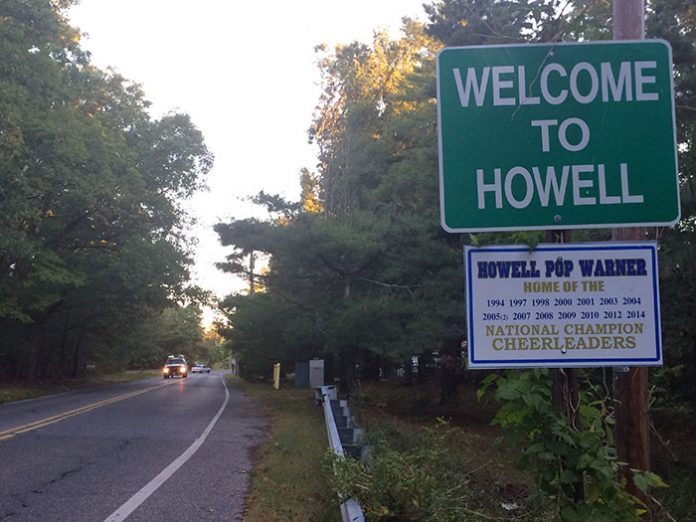
HOWELL – The township is among 15 municipalities slated to receive a grant from Sustainable Jersey for floodplain reforestation projects.
The Roots for Rivers Reforestation Grant and Technical Assistance Program is a partnership between The Nature Conservancy, The Watershed Institute and Sustainable Jersey. To date, Roots for Rivers funded more than 92,000 trees to support New Jersey floodplains.
Howell will receive $5,426.60 to be used for a project reclaiming the Winston Park Flood Plain. This project will involve the planting of 757 trees.
This came as welcome news to Joan H. Osborne, who heads the township’s Environmental Commission. “The Environmental Commission applied for the grant for the Township and is the lead on the project.”
Osborne said she wanted the public to be aware of the project and the township’s receipt of the grant. “We are in the planning stages for what we hope to be an April 25 planting event, celebrating Earth Day.”
Along with Howell, the 15 grant recipients include Oakland Borough (Bergen), Glen Rock Borough (Bergen), Maple Shade Township (Burlington), Belleville Township (Essex), South Orange Village (Essex), Kingwood Township (Hunterdon), Readington Township/Bloys Farm (Hunterdon), Readington Township/Holland Brook (Hunterdon), Highland Park Borough (Middlesex), Woodbridge Township (Middlesex), Mantoloking Borough (Ocean), Passaic City (Passaic), Manville Borough (Somerset) and Summit City (Union).
Each of these communities will receive funding to cover the costs of tree saplings and protection. The trees will be planted by local volunteers.
To help The Nature Conservancy reach its goal of planting 100,000 trees by 2020, a second application period is open for the 2020 Roots for Rivers Reforestation and Technical Assistance Program. Interested municipalities should review and submit the grant application. Applications will be accepted until March 2.
Michelle DiBlasio, the Watershed Restoration Coordinator for the New Jersey Chapter of The Nature Conservancy, said, “throughout much of the state, our floodplains have been deforested and left without trees to help filter water, absorb flooding or cool the river for fish.”
“One important way to help ensure we can continue to rely upon our precious natural water resources is to restore New Jersey’s floodplains – the critical land near our rivers’ banks. For the past five years, The Nature Conservancy has worked with local, state and federal partners in northwestern New Jersey to reforest the floodplains of a key tributary to the Delaware River, the Paulins Kill. Through the Roots for Rivers reforestation program, we have been able to catalyze these restoration efforts state-wide and help communities protect their local waterways for future generations,” DiBlasio said.
Planting trees in places where the floodplains have been degraded will protect the lands and waters on which the people of New Jersey depend. “This funding is exactly what we need to manage flood waters and save endangered fish and wildlife,” said Randall Solomon, executive director of Sustainable Jersey.
Solomon said, “besides flood and drought protection, floodplains can prevent erosion, improve soil formation, purify water replenishing groundwater reservoirs and support the conservation of habitats and species. Sustainable Jersey values our partnership with The Nature Conservancy and applauds the municipalities for doing the hard work at the local level.”
Sustainable Jersey provides tools, training, and financial incentives to support communities as they pursue sustainability programs. Currently, 80 percent – or 453 – of New Jersey’s 565 municipalities are participating in the municipal certification program and 346 school districts and 903 schools are participating in the Sustainable Jersey for Schools certification program.






